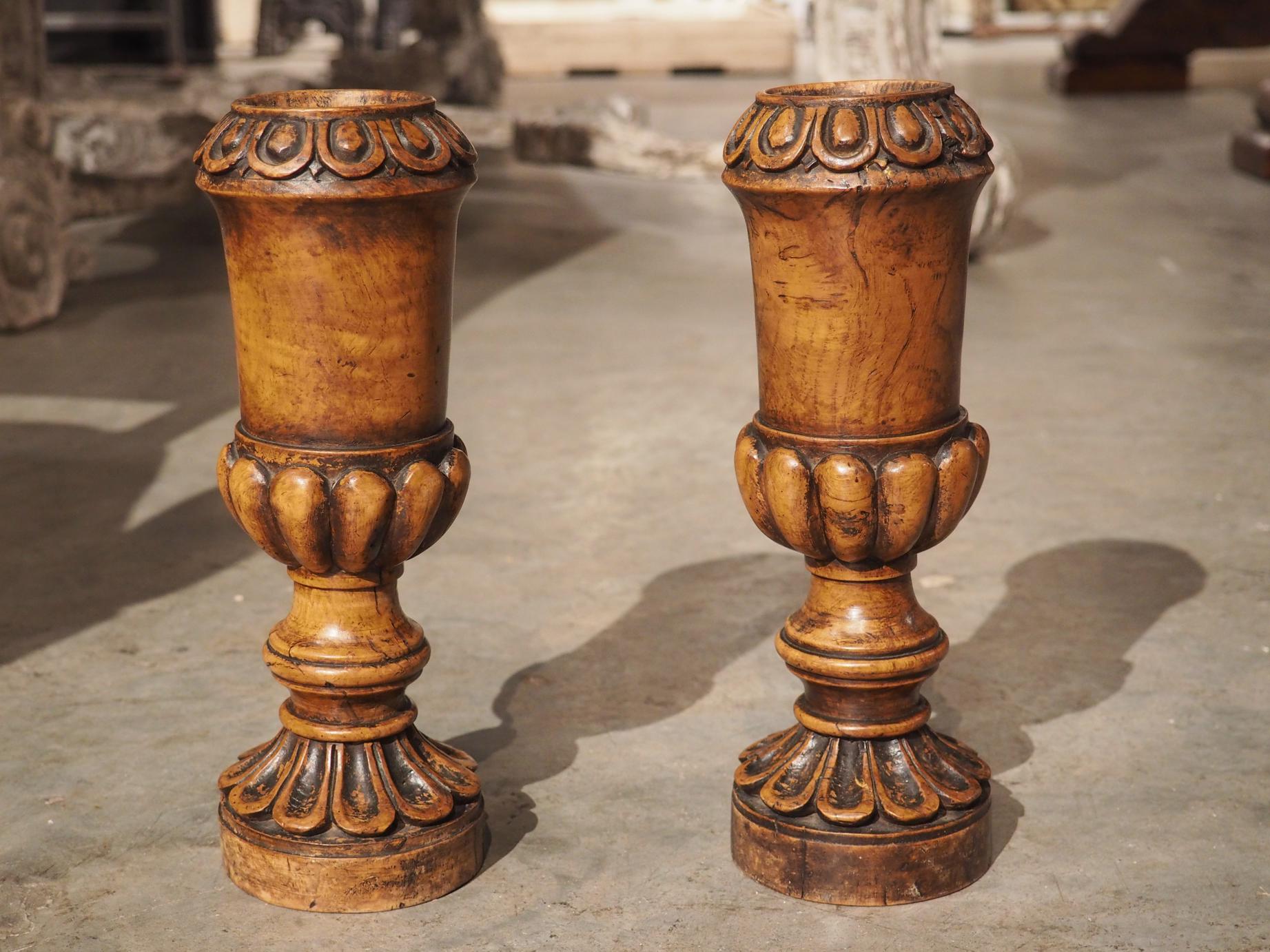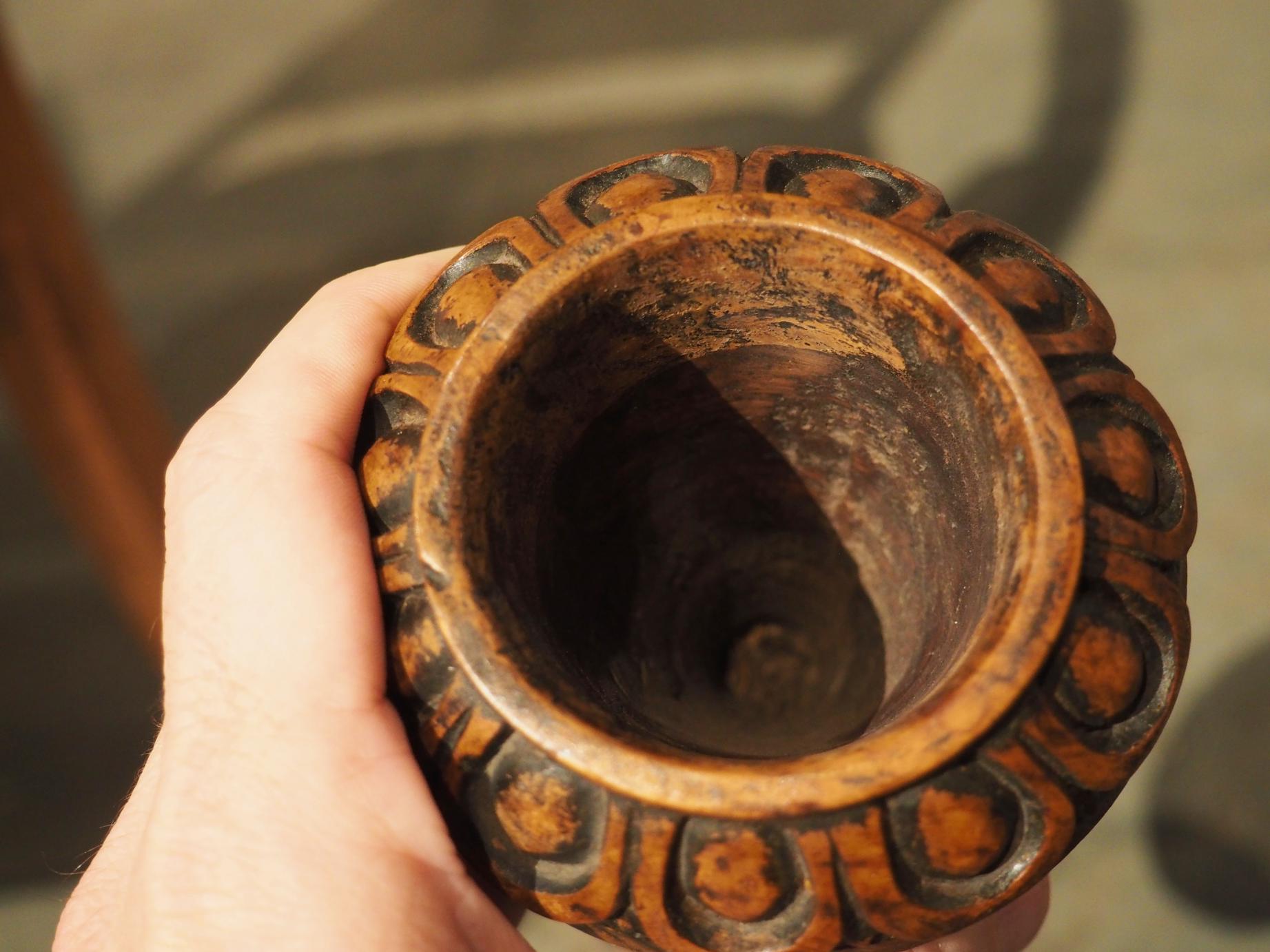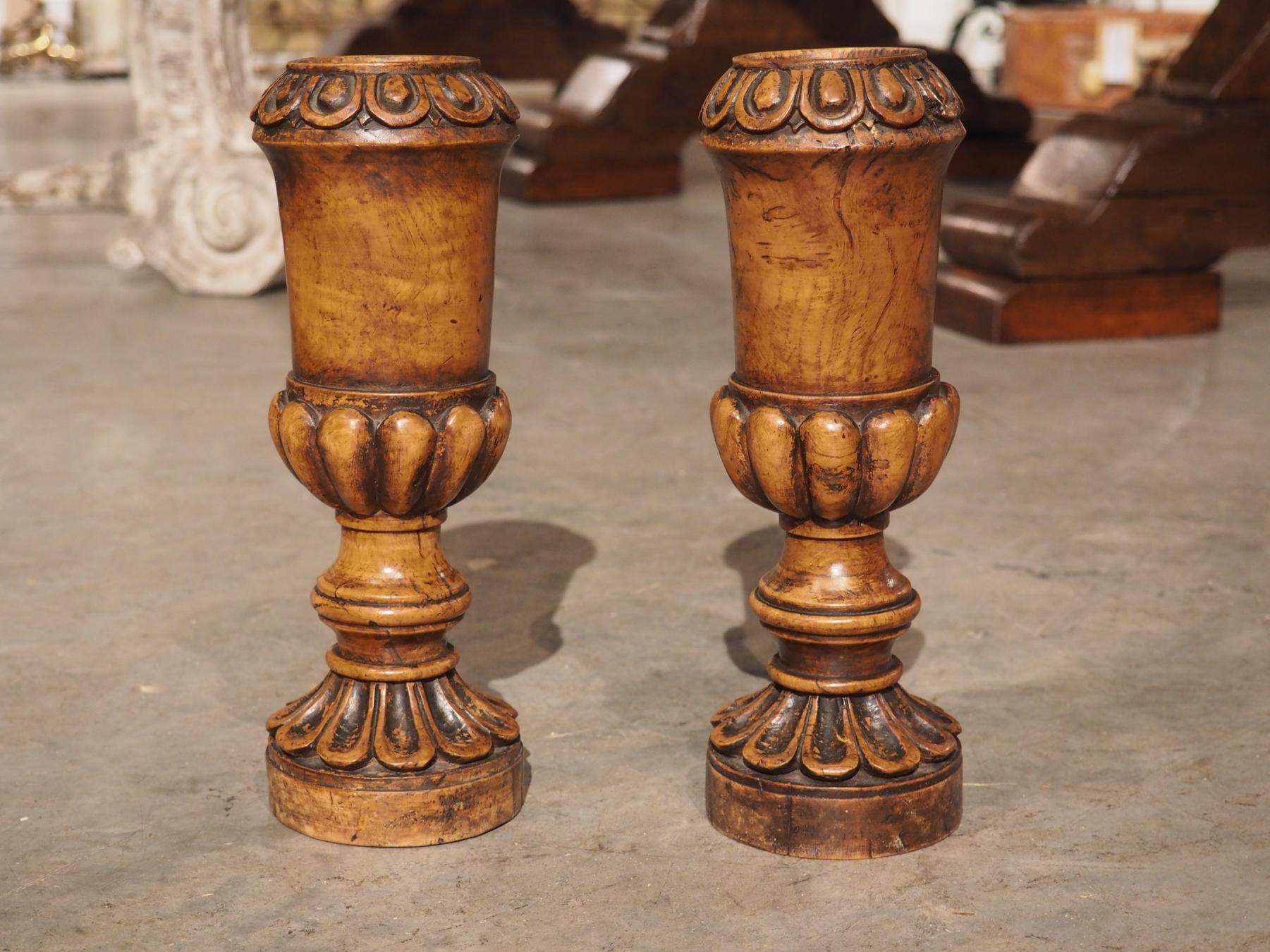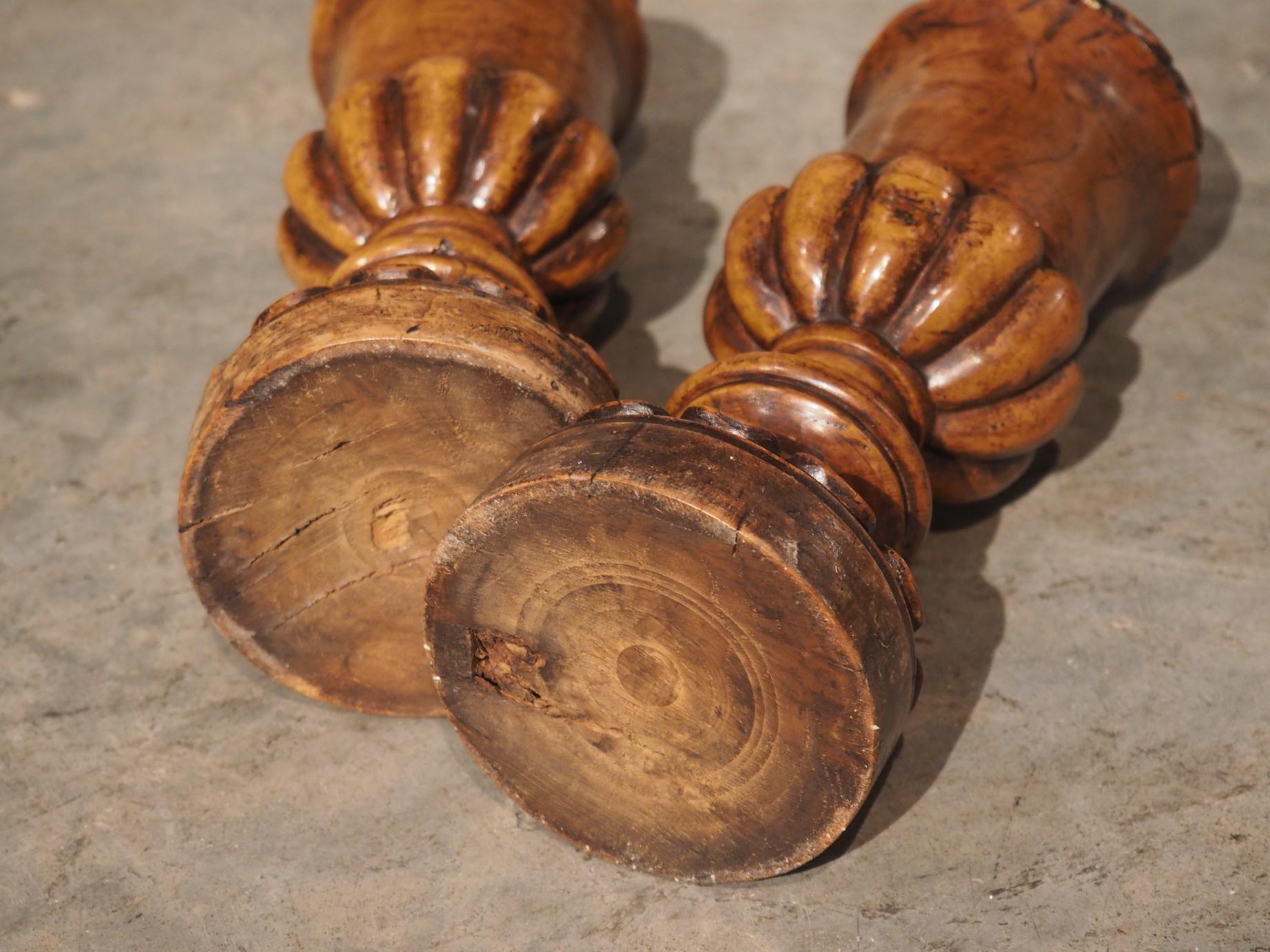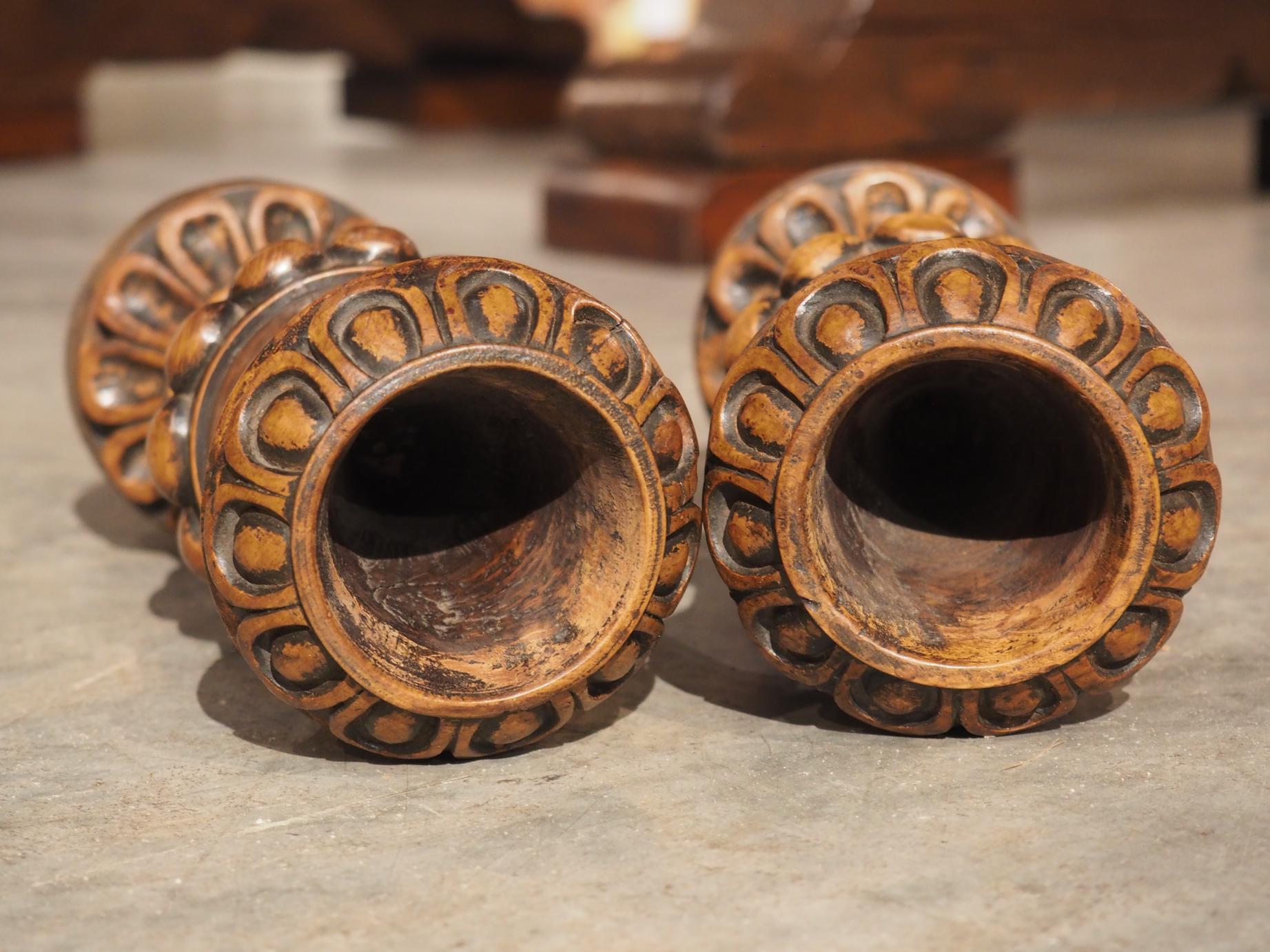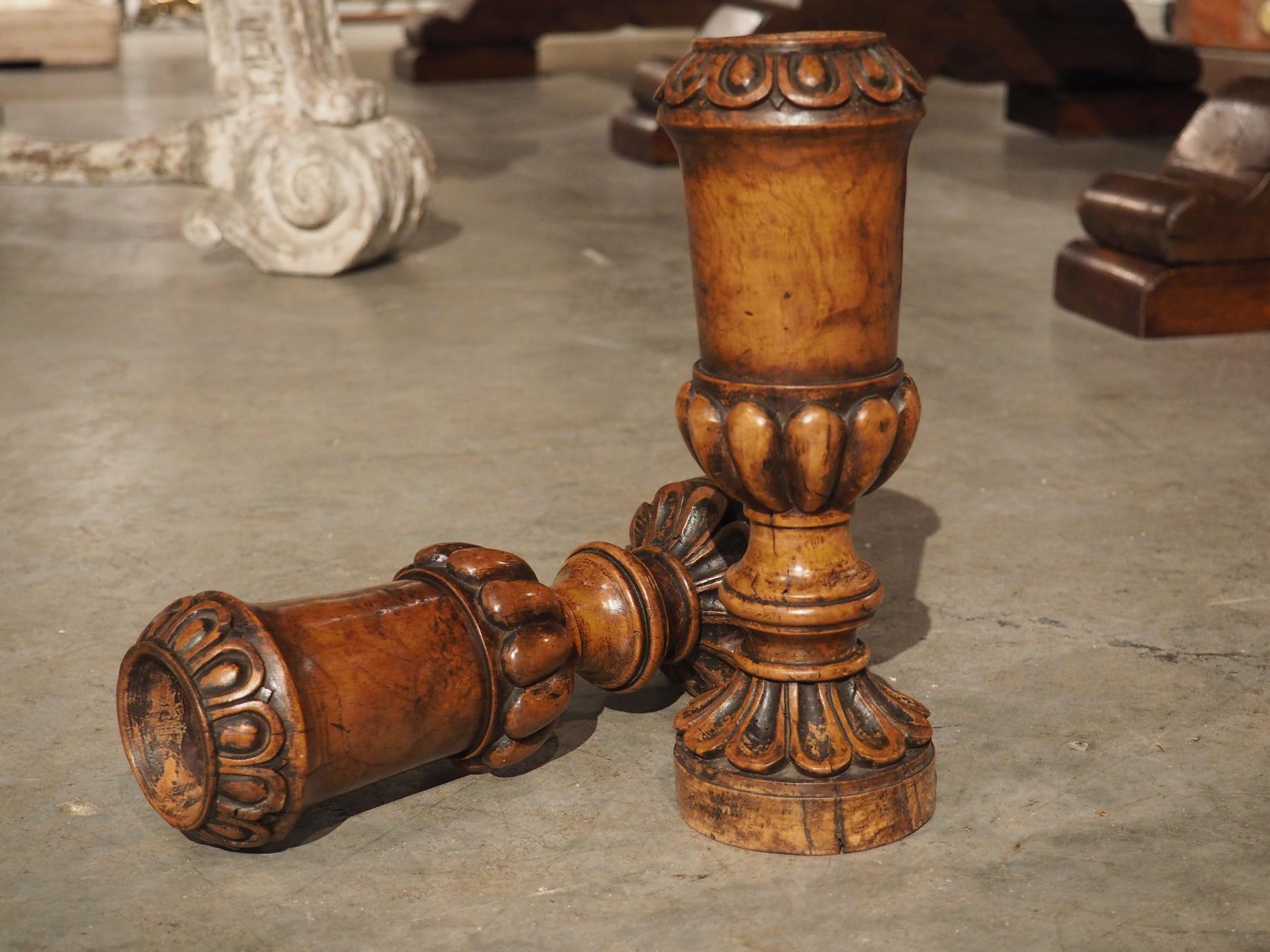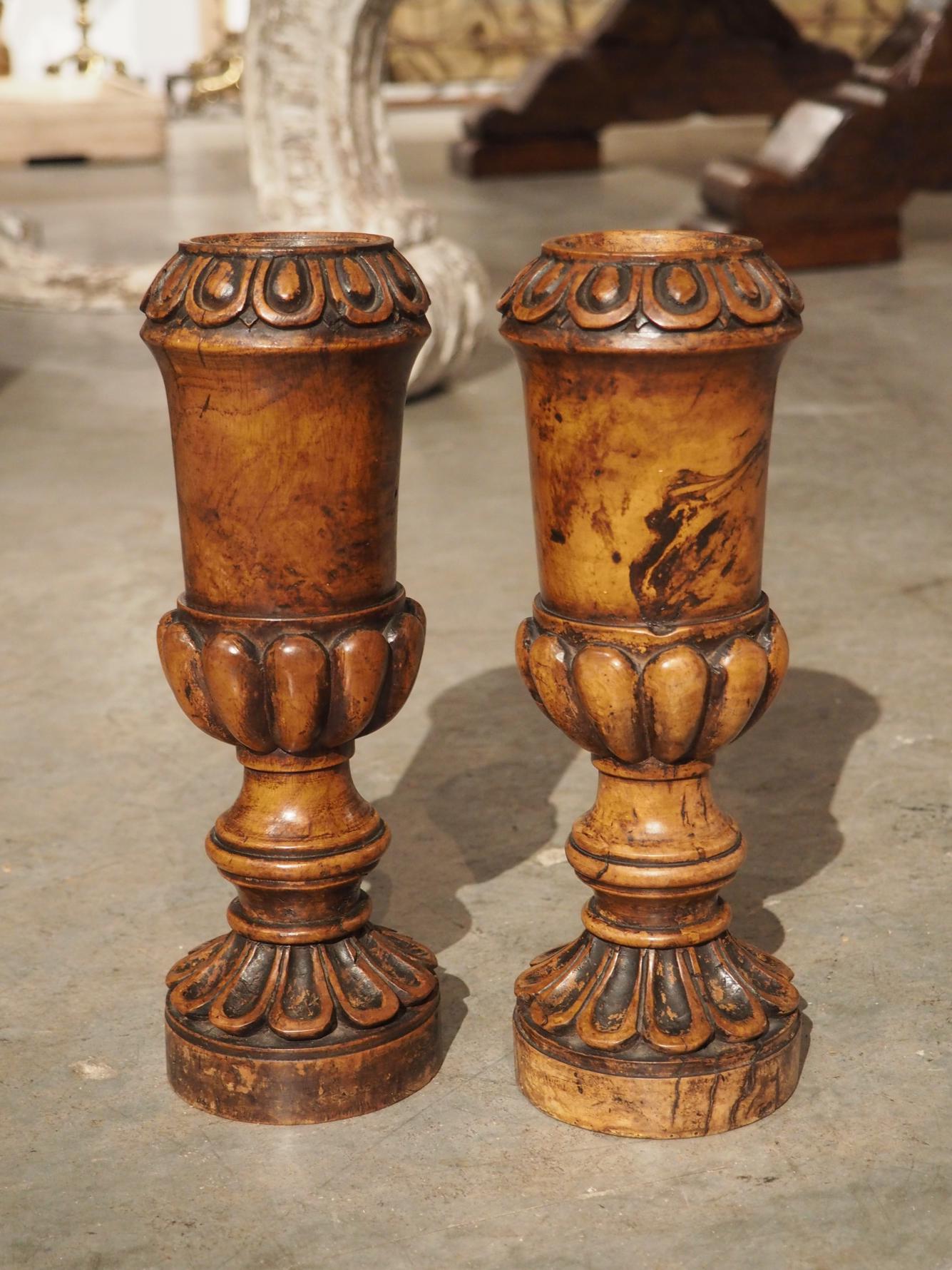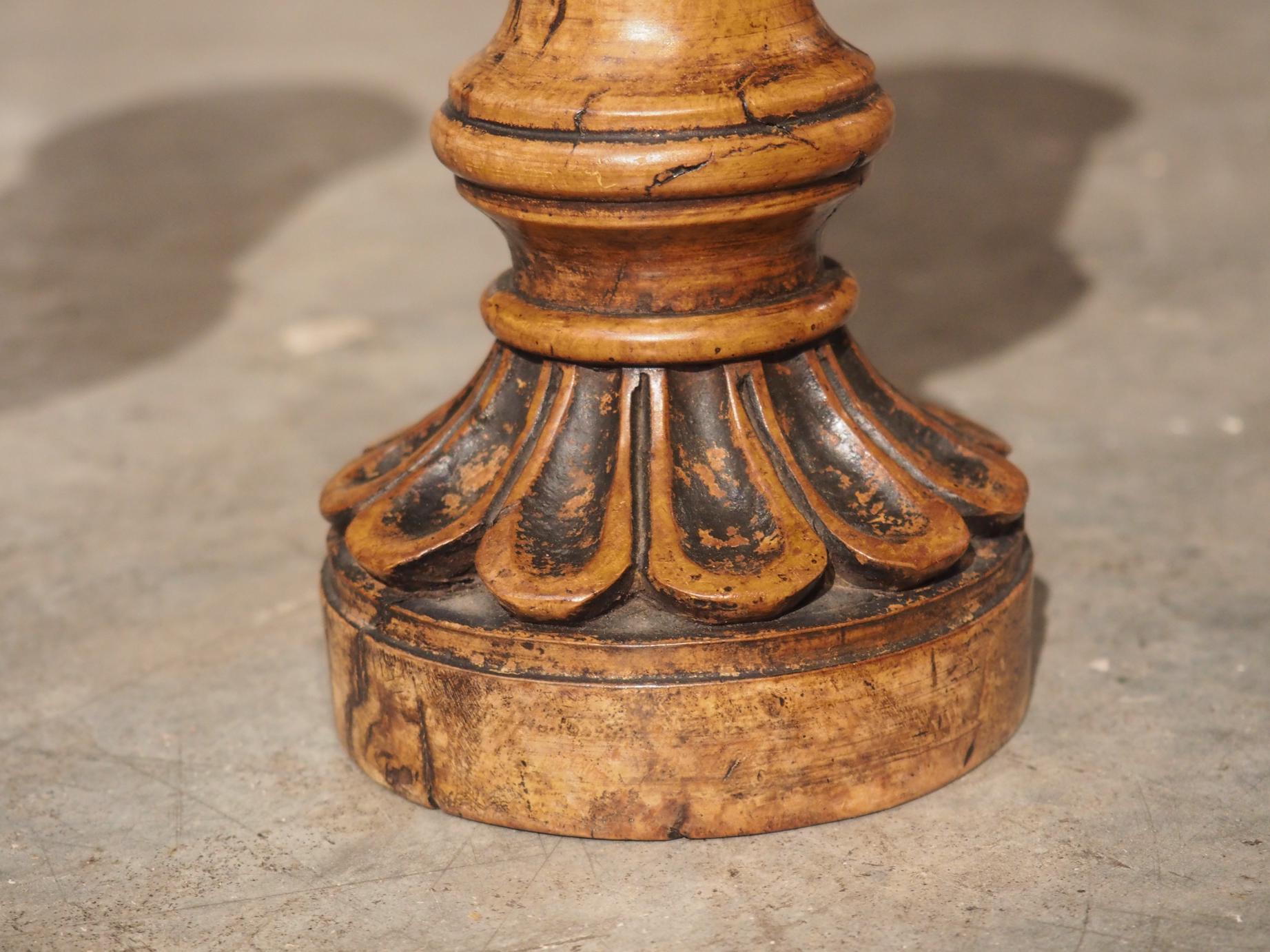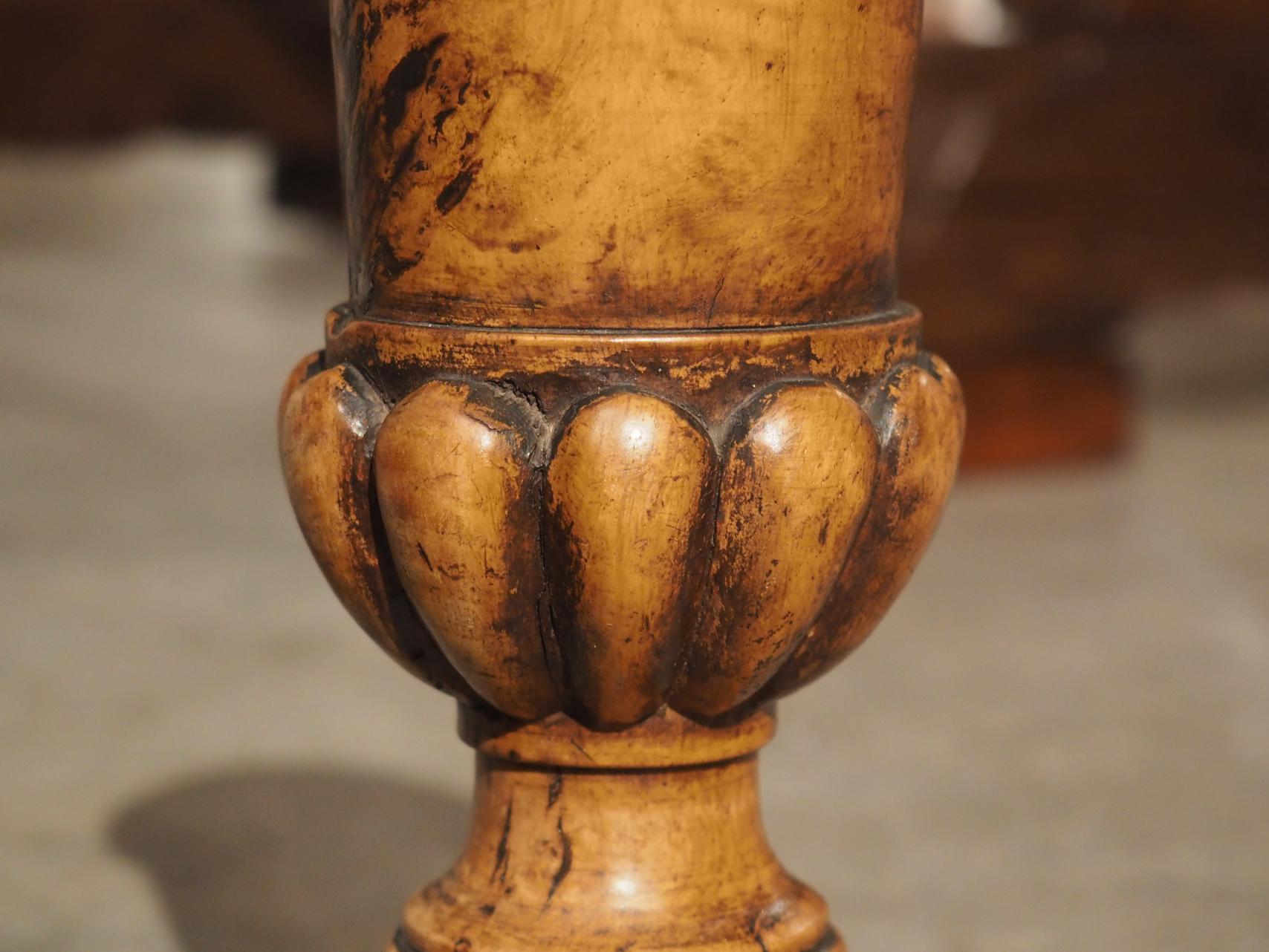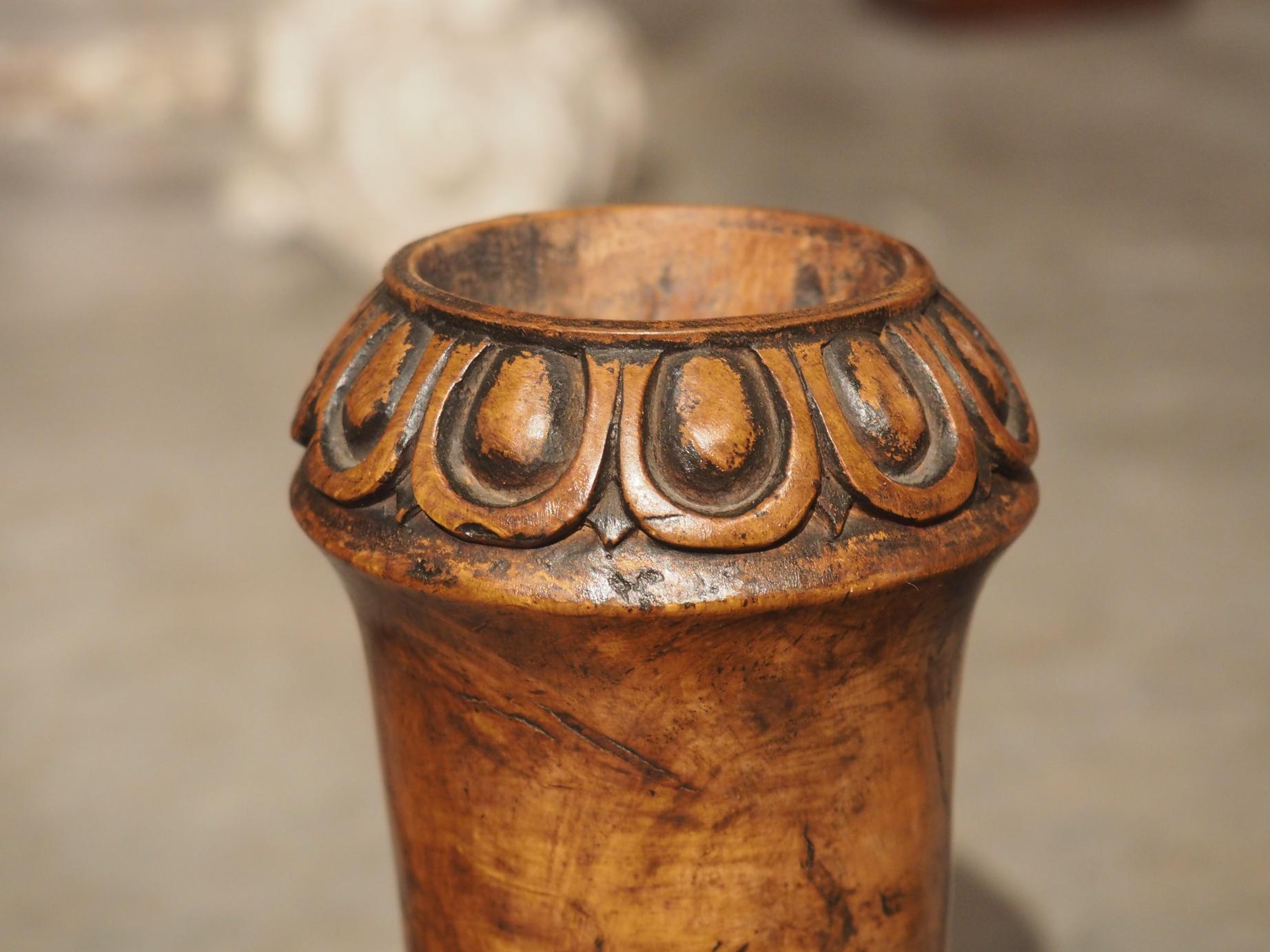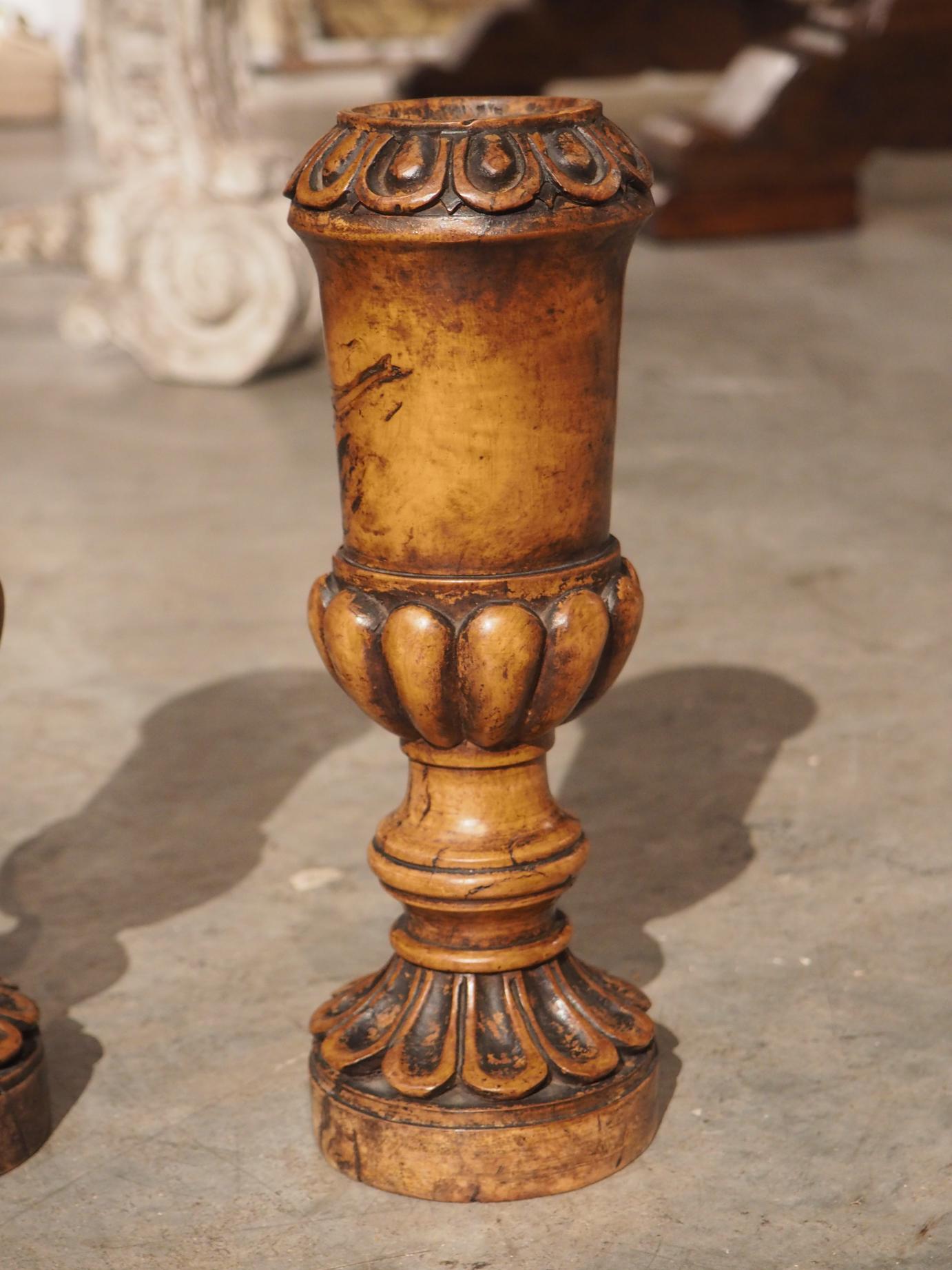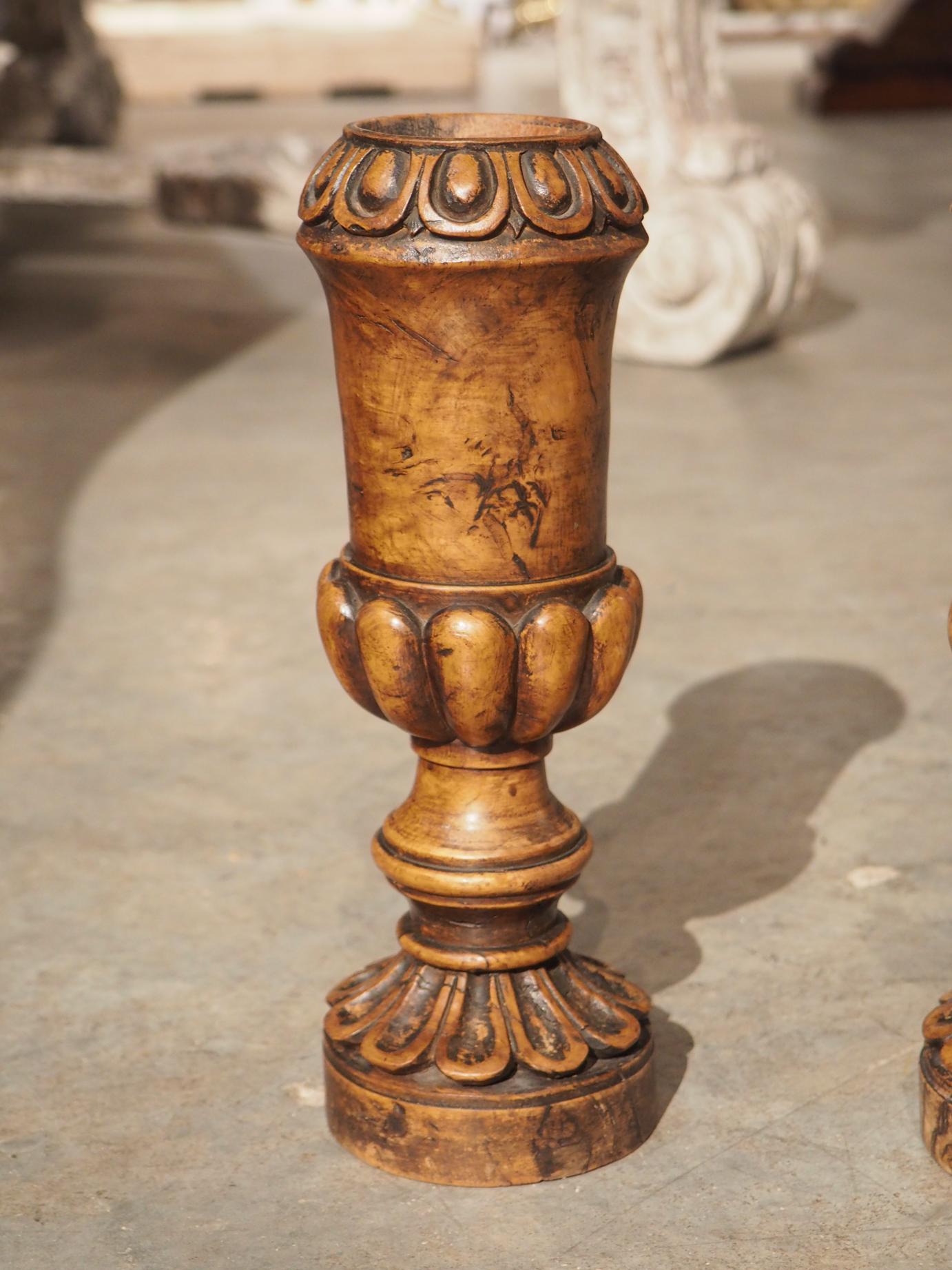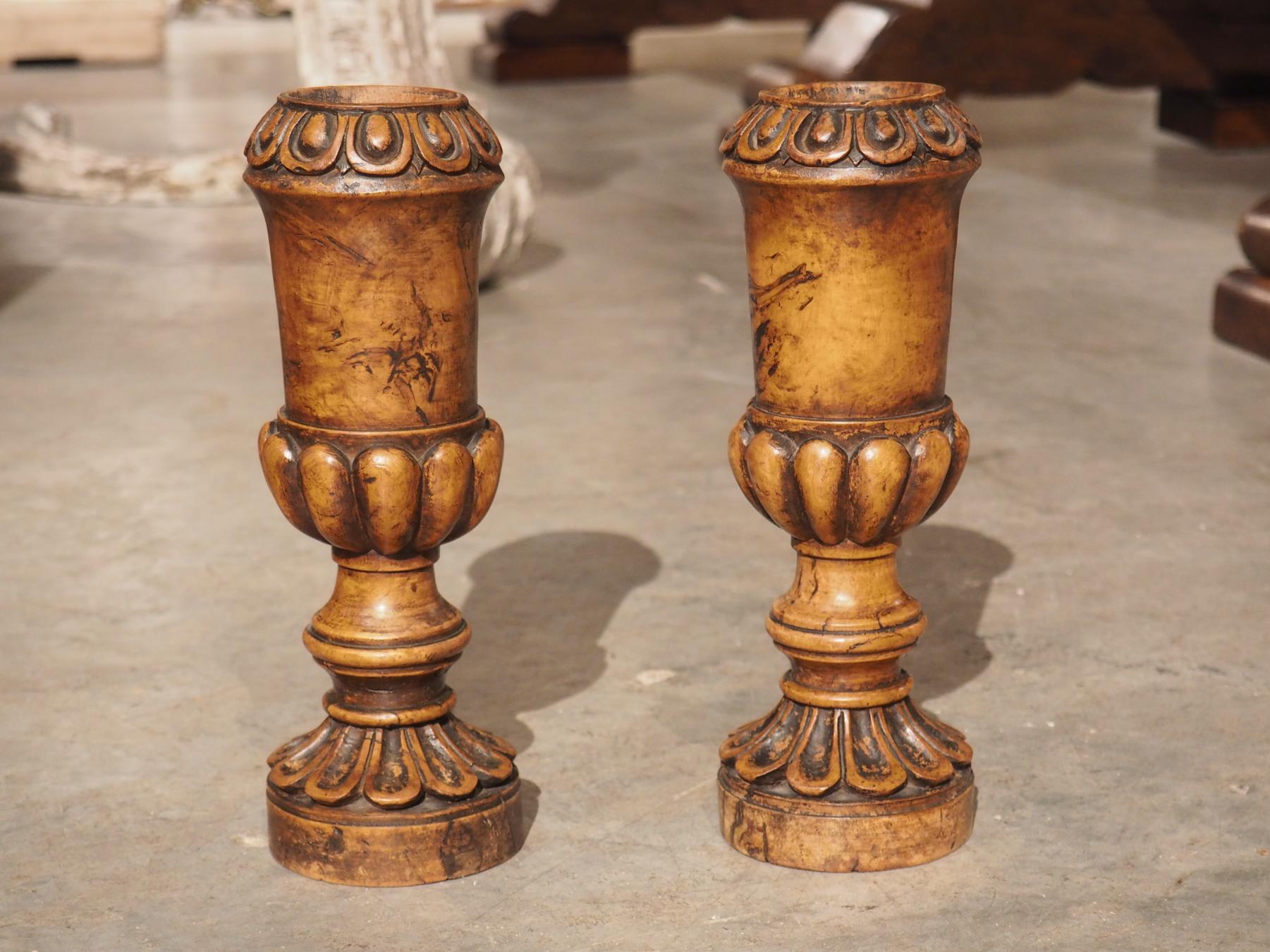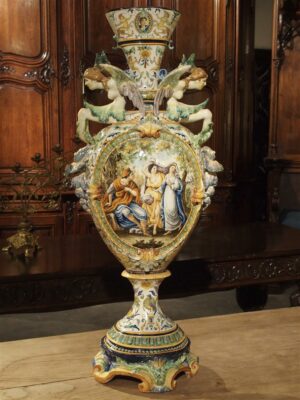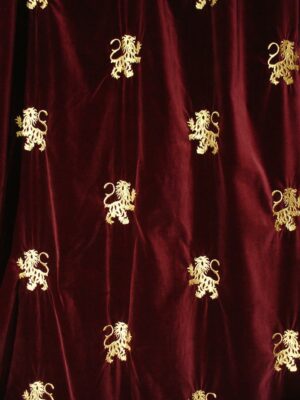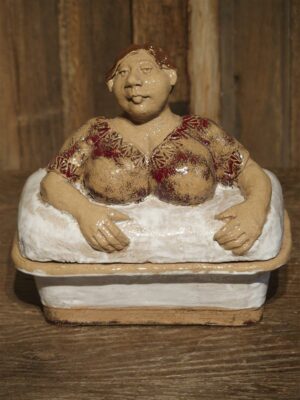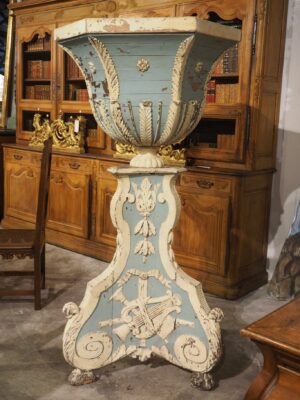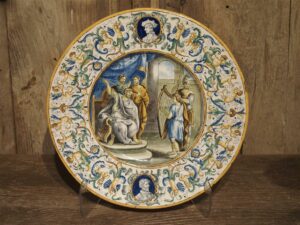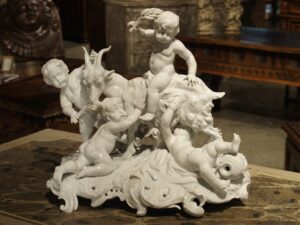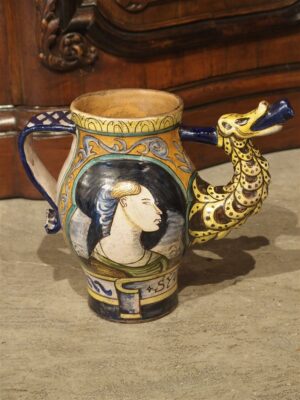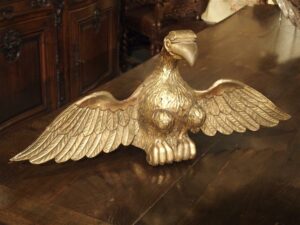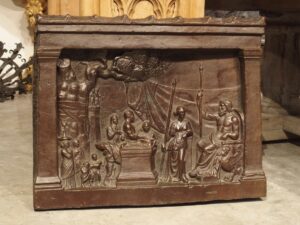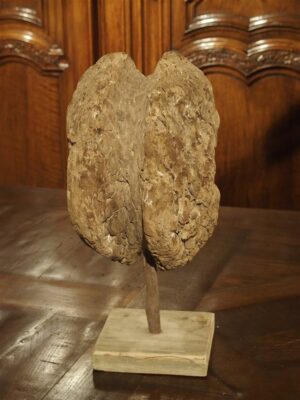Hand-carved in England, circa 1820, these lovely spill vases were fashioned out of burl walnut. The vases have developed a tremendous, darkened patina, particularly along the carved motifs, such as the egg and dart rim and the concave fluting above the one inch thick circular base. There are also large gadrooned lobes above the molded neck, giving the vases a pleasing form. The black, swirling burls add to the aesthetics, punctuating the rich, honey colored wood.
When matches were invented around the turn of the 19th century, they were expensive, crudely constructed, and produced an awful smell (they differed greatly from today’s matches) that made them less than desirable. A more practical method for lighting fires and tobacco products was to use a long piece of wood, known as a spill. Vessels, such as our pair of carved walnut spill vases, were often placed on the top of lintels to store unused spills. In the late-19th century matches became more practical and the advent of electricity lessened the need for flame-illuminated light sources; at this point spill vases became highly sought after decorative accessories and table centerpieces.
CONDITION: Very good antique condition with minor wear commensurate to age and use. The vases have developed a great, darkened patina along some of the carvings.


